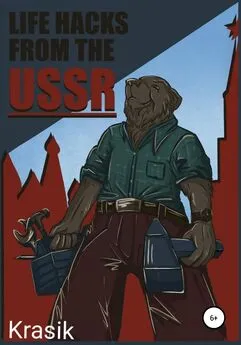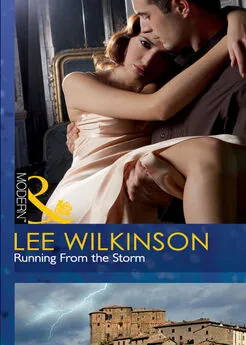Jamie Freveletti - Running from the Devil
- Название:Running from the Devil
- Автор:
- Жанр:
- Издательство:неизвестно
- Год:неизвестен
- ISBN:нет данных
- Рейтинг:
- Избранное:Добавить в избранное
-
Отзывы:
-
Ваша оценка:
Jamie Freveletti - Running from the Devil краткое содержание
A race against evil . . . Emma Caldridge, a chemist for a cosmetics company, is en route from Miami to BogotA when her plane is hijacked and spins out of control into the mountains near the Venezuelan border. Thrown unhurt from the wreckage, she can do nothing but watch as guerrillas take the other passengers hostage. An endurance marathon runner, Emma silently trails the guerrillas and their captives, using her athletic prowess and scientific knowledge to stay alive. Those skills become essential when she discovers an injured passenger, secret government agent Cameron Sumner, separated from the group. Together they follow the hostages, staying one step ahead by staying one step behind. Meanwhile, as news of the hijacking breaks in Washington, the Department of Defense turns to Edward Banner, former military officer and current CEO of a security consulting firm, for help. Banner quickly sends a special task force to the crash site, intent on locating the survivors before it's too late. But finding Emma and Sumner is only the beginning, as Banner starts to realize that Emma was on a personal mission when the plane went down. There is more to the beautiful, talented biochemist than anyone ever imagined, for in her possession is a volatile biological weapon in an ingenious disguise, one that her enemies have set for auction to the highest bidder. Combining the action-packed plotting of Lee Child and Daniel Silva, and the rich scientific detail of Kathy Reichs and Tess Gerritsen, "Running from the Devil" is a breathtaking debut from a bold and daring new author.
Running from the Devil - читать онлайн бесплатно полную версию (весь текст целиком)
Интервал:
Закладка:
“Suggestions?” Banner said.
Miguel nodded. “Wait until they make contact and then send them whatever ransom they demand. It’s the best plan for getting those people out alive, and the price demanded will pale in comparison to the cost of a rescue mission.”
Whitter shook his head. “Absolutely not. The United States does not negotiate with terrorists.”
“Actually, we already have negotiated. There’s a tacit agreement between the United States and Colombia to allow the far-right guerrilla leaders immunity from extradition to the U.S. if they agree to lay down their arms. If that’s not negotiating with them, I don’t know what is.”
Whitter bristled like a porcupine under attack. “That deal was not cut by the United States. It was cut by the president of Colombia with the guerrilla leaders.”
“And the United States didn’t argue with it.”
“It’s still not the same as negotiating with kidnappers.”
Banner put a hand in the air to silence the men. “Miguel, help me out here. Did these paramilitary groups take the Colombian president up on his offer and lay down their arms?”
“Thousands did,” Miguel said.
“Then why do you think we’re dealing with a paramilitary group in this hijacking?”
“Because the president has been negotiating only with the far-right paramilitary groups. The far-left guerrillas, the FFOC, have not been approached by the Colombian government.”
“So you think this kidnapping is a bid to force the president of Colombia to begin negotiations with the far left,” Banner said.
Miguel paused. “Perhaps. It could also be an attempt to derail the peace process entirely. The process requires that the paramilitary groups return control of the country to the government. These guys may not be too keen on giving up that kind of power.”
“Or it could be unrelated and we are drawing the wrong conclusions.” Whitter stabbed a finger at Miguel as he said this.
“That is also correct,” Miguel said.
Banner liked that Miguel conceded the point to Whitter. It showed him that the man would not proceed on assumptions blindly.
“Alternative suggestions to negotiating?” Banner said.
“Pull twenty special forces personnel off the pipeline detail and gather them for a reconnaissance mission to find the crash site. From there try to determine the location of the passengers. Track them through the jungle, if that’s what’s required.” Miguel sounded determined.
Whitter shook his head. “No. It’s a waste of resources. Why go to an area that the Colombian military has already canvassed?”
“Because I don’t believe them,” Miguel said.
The undersecretary of the air force snorted. “You think these guys are lying?”
“There are those who say that the Colombian army has been hand in glove with the paramilitary groups for years. Even Colombia’s own special forces unit in charge of rescue operations has been implicated in a massacre of the Colombian police. I don’t think we can take anything for granted in an area as rife with corruption as this one.”
“I won’t go along with this,” Whitter said. He turned to Banner. “If we go there anyway, it looks as though we don’t trust the Colombian government. This country is an ally.”
For the first time, Miguel looked aggravated. “Mr. Whitter, that’s why I suggest that we use the men already posted in the area. We save valuable time and we avoid the questions that would arise from sending a wave of new military manpower.”
So that’s why I’m here, Banner thought, to provide unofficial muscle if Miguel’s plan fails. He glanced at Miguel and kept his voice mild. “Did General Corvan approve the mission?”
“He did, pending your input. He said that no one knew better than you how to run a search-and-rescue mission in hostile territory.”
“I’m flattered.” Banner and General Corvan went back to the early days, when they had taken turns saving each other’s hide.
“Who would be in charge of the mission?” Banner asked the question, but he figured he could guess the answer.
“I am. I leave tonight,” Miguel said.
5
LUIS RODRIGO STOOD IN THE BAKING SUN ON THE SCORCHED AIRSTRIP and watched his soldiers shove the airline passengers into a small circle. One man moved too slowly, and a guerrilla hammered him with the butt of his gun. The man dropped like a stone. Rodrigo’s first lieutenant, Alvarado, came to stand next to him.
“They are stupid and slow,” Alvarado said.
“Each is worth more money than you’ll see in ten years. You tell Jorge I see him hit another without my permission and I’ll cut off the hand he used at the wrist.”
Alvarado stepped back. “They are arrogant Americans. They need to know who is in charge.”
“I am in charge. I will decide who lives and who dies.”
“We made more money with the coca. This”—Alvarado swept his arm to take in the passengers—“this does not pay the same, and the risks are large.”
“Coca is dying every day. I don’t need to remind you of this, Alvarado. You see the herbicide-dusting planes flown by the Americans. The fields are withering. In two years coca won’t pay enough to cover the plane fuel to transport it.”
“Coca will always be profitable,” Alvarado said.
“For the cartels, yes, but not for us. We need to show the cartels that we can be profitable partners for them.”
Alvarado stared at the passengers. He pulled a cigarette out of a pack rolled in his sleeve and lit it.
Luis analyzed the hostages as he watched the plane get stripped. Most had the soft, obese, and overcivilized look of Americans. One drew Luis’s eye. He stood six feet three inches and weighed about one hundred eighty pounds. Seven inches taller and thirty pounds heavier than Luis, he had dark hair and an athlete’s body. He moved easily, sweating in the heat, his mouth set in a grim line. This man smelled like danger to Luis. He made a mental note to watch him.
Luis swept his gaze over his men. Alvarado looked hung over, Juan’s pupils were the size of quarters, and Manzillo gulped from a bottle of aguardiente and stumbled over something that only he could see. The mental state of the rest was always suspect. If they weren’t armed, they couldn’t have subdued a fly. Armed, they were ticking time bombs waiting to explode.
“How many do we have?” Luis said to Alvarado.
Alvarado shrugged. “Fifty. Maybe sixty. Is this enough for the FFOC?”
Luis counted sixty-eight. “They expected more. Especially given the risk.”
“Then they should have let us land on a longer strip. I don’t like it, Luis. The gringos won’t take this lying down.”
Luis felt his irritation rise. Alvarado was right, but lately he’d been sounding like a broken record, always negative, always warning. This job was a joint effort of the FFOC and the northern drug cartels, and the first time they’d given Luis any role in one of their operations. The FFOC provided the expertise and detailed planning needed to hijack the jet, and the drug cartel provided the planes within the country that would transport the passengers to the exchange location once they were ransomed.
Luis’s role was to deliver the hostages and any valuables to a secure location in the mountains to await ransom. The FFOC and the drug cartels considered Luis’s small group of paramilitary losers to be expendable, and so gave them the most grueling and dangerous job.
Luis knew the majority of his men were morons, long past stupid and incapable of any thought beyond their daily hit. Still, he was proud that he had been able to turn them into some semblance of a military group. The FFOC had finally responded to his repeated requests to be given a job that would prove his value as a leader. He intended to make the most of it.
“By the time the Americans find the crash site, we’ll be deep in the mountains. No gringo knows these hills like we do. It will take them months to search for them. By then, the ransoms will have been paid.”
Alvarado sucked on his cigarette, his eyes never moving from the passengers. “It would be easier if we could load them on the trucks and use the road.”
Luis let his irritation show. “That would also be easier for the Americans to find us. No trucks, Alvarado. We make a trail through the jungle to the first checkpoint. We’ll get them on trucks at that point.”
“We’ll lose at least ten more from the land mines as we march,” Alvarado said.
“We march them in front of us. Better one of them step on a paw-breaker than one of us, eh?” Luis grinned at Alvarado. “And put the fat ones in the front. I want to keep the fit ones for working.”
“And the women?”
“The women we reserve for other things.”
Alvarado laughed.
6
EMMA CAME TO SOME TIME LATER. THE TREES STILL BURNED. Heat reflected off the landing strip, creating waves that looked like transparent streamers undulating upward. She disentangled herself from the bush and moved farther up the mountain to get a better view of the landing strip.
The surviving passengers sat huddled in a circle at the beginning of the runway. Some leaned against their neighbors, while others curled forward with their heads on their knees. Emma recognized several from the plane. An older gentleman, with a full head of white hair, sat tall, despite his age. All but four had their hands tied behind their backs.
Thirty guerrillas, armed with assault rifles, guarded them. They all wore the same dirty green fatigues with lace-up boots. Some drank from canteens that they kept in holders attached to their belts, some smoked cigarettes, and others sucked on hand-rolled brown sticks that looked like joints. All were armed.
One guerrilla stood out from the others. Lean, wiry, with an unshaven, rat-thin face and crazy pinball eyes, he shouted orders and marched back and forth in front of the circle of survivors. The others jumped to obey him.
They’d landed on a dirt airstrip the size of a football field backed on one side by a mountain, on the other by dense foliage. Several trees and jet parts still smoldered, sending thin ribbons of gray smoke into the air. The jungle threatened to encroach on all sides. Stately trees fought with smaller palms for every inch of available space and light. Tropical vines coiled around everything upright and ran along the ground, searching for their next host. The foliage formed a living wall.
Huge potholes dotted the dirt strip, creating a hazard for the landing gear of any plane forced to use it. A deep gash ran the length of it. The end of the gash disappeared under the aft section of the jet. Sun beat down on the strip. Charred bodies, still smoking, littered the dirt around the aft section. Emma gritted her teeth to stop the nausea that rose at the sight of the dead.
The guerrillas barked orders at several male passengers as they worked to pull blackened suitcases from the remains of the cargo hold. Emma recognized one of the passengers who’d sat in the third row. About thirty, tall and slender, with thick dark hair and dressed in a polo shirt and khakis, he had spent the entire flight typing furiously on a laptop computer, stopping only to stare around the first-class cabin with a hyperalert demeanor. On the plane Emma had pegged him either as an overworked oil executive or a paranoid coke addict. She had dubbed him “Wary Man” and hadn’t thought about him again. Now soot covered his face and his polo shirt was in tatters, but he still exuded an air of silent intensity.
A surprising amount of cargo survived the plane’s ill-fated landing. Four guerrillas went to work emptying the suitcases, removing anything valuable. They took laptop computers, jewelry cases, and cameras, but left most of the contents scattered on the ground. Clothing, toiletries, shoes, and hair dryers littered the runway.
Читать дальшеИнтервал:
Закладка:
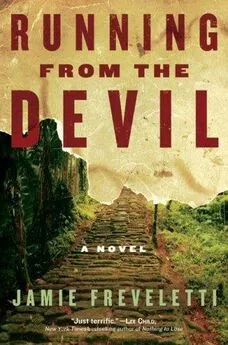

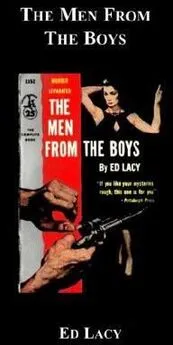
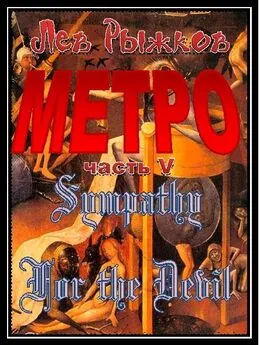
![О Генри - С высоты козел [From the Cabby's Seat]](/books/1083418/o-genri-s-vysoty-kozel-from-the-cabby-s-seat.webp)

